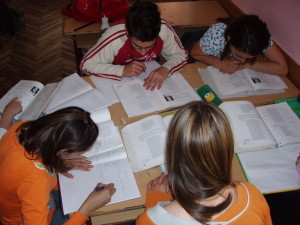A few years ago, English was widely perceived as a foreign language. But over time, the role of English has increased so much that it is now considered worldwide used. English of us becomes almost the biggest problem in life. Every adult wants to master English at least at speaking. Why is that?
And the list is endless …
WHY ENGLISH INTERNATIONAL LANGUAGE?
Today it is no secret that English is considered the international language. This situation has many causes positive emotions and negative. On the one hand, of course, the existence of a common language in which to communicate in any country and at the same time to forget about any language barriers – it’s wonderful. You can not only think about how to communicate in a country where speaking in tongues, but also make new friends, learn another culture, and thus consider a completely different values that are different from all nations. The international language such as English can bring all nations to make people more friendly and for all to remove linguistic misunderstanding, expand the space to chat unattainable level .No there is another opinion, that is not so optimistic as above, namely, quite a large category of people consider that the existence of an international language, of course, is good, but there is a danger that it will eventually absorb all the other languages and thus the cultural values of each nation will remain in the past. Every nation will no longer be unique and unique in its kind, and will gradually become the international language, and replace the value of a single national language. Of course, it is the opinion of many issues cause, but it is worth noting that it is not without a certain meaning and relevance, and if viewed from the perspective of our future, nothing is impossible, and sometimes the situation can turn in unexpected way. Why English the international language? This is due to the fact that his study is relatively easy process that can be learned quickly. Moreover, we note that to learn the language, and any person at any age.
How many people, so many opinions, there can be no doubt, and every man for himself must decide how important for him to know the English language and the role of language in the world.

HISTORY OF ORIGIN OF THE ENGLISH LANGUAGE
The origins of the English language goes back centuries, while it is saturated with many borrowing words from other languages, if not to say that the formation of English and is based on a mixture of several languages and to change the basic guiding language constructs. In the history of the English language are three periods which are called Old English, Middle English and New English. Surprisingly, the ancestors of the English language became the Germanic tribes, who at one time emigrated to the British Isles. The formation of the language influenced the feudal Norman invasion, which significantly changed the language and made him many expressions and words that make up a considerable reservoir of language.
If we talk about the new English, his period lasts to the present day, and the beginning of the period falls at the start of printing, when the English began his literary formation. Also, it is during this period indicates the formation of two most common dialects, namely the British and American. If we look at how the English language is formed at the moment, you can see exactly what the above two dialects are becoming more pronounced, and thus divide the whole process of learning English in the two guides.
The origins of the English language quite bright and saturated, its study is mandatory in the process of learning English, because in this way you will be able to understand the numerous word-building and more deeply understand their essence. Also, learn the history of the target language is always very interesting, it is interesting to know exactly how one or another language was born. And with regard to the English language interesting fact is exactly how the language has won the sympathy of the world and has become so popular.